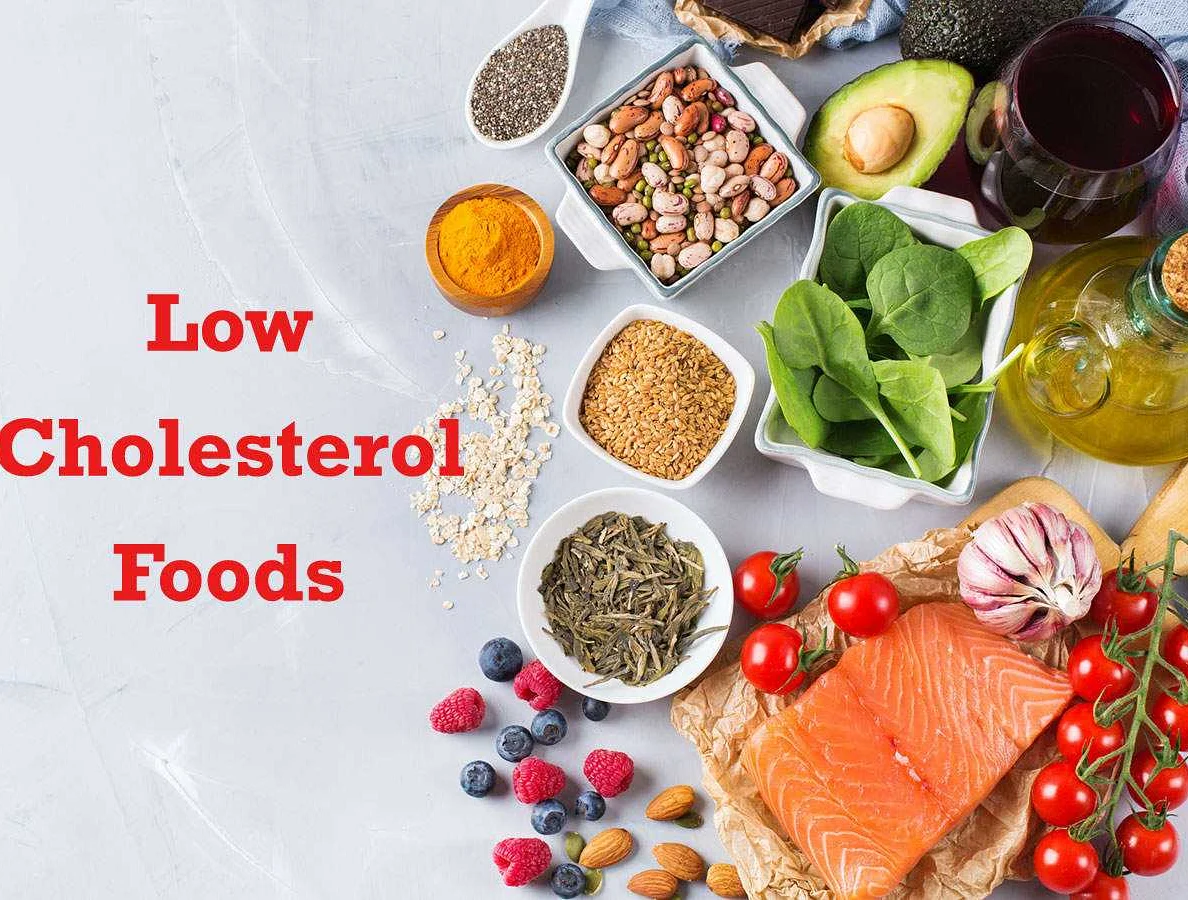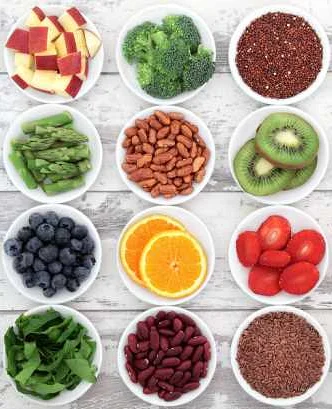Simple tips to lower cholesterol levels
Содержимое
Learn effective strategies to lower cholesterol levels naturally and protect your heart health. Find out about dietary changes, exercise, and other lifestyle modifications that can help you reduce your cholesterol levels and improve your overall well-being.
High cholesterol levels can increase the risk of heart disease, stroke, and other serious health issues. Fortunately, there are several natural ways to lower cholesterol levels and improve overall heart health. By making simple lifestyle changes and incorporating certain foods into your diet, you can significantly reduce your cholesterol levels and promote a healthier cardiovascular system.
1. Eat a Heart-Healthy Diet: Incorporating foods that are low in saturated fats and high in fiber can help lower cholesterol levels. Opt for whole grains, fruits, vegetables, and lean proteins such as fish and poultry.
2. Get Regular Exercise: Engaging in regular physical activity can help raise levels of HDL (good) cholesterol and lower LDL (bad) cholesterol. Aim for at least 30 minutes of moderate-intensity exercise most days of the week.
3. Maintain a Healthy Weight: Losing excess weight can have a positive impact on cholesterol levels. By maintaining a healthy weight through diet and exercise, you can lower LDL cholesterol and improve overall heart health.
4. Limit Processed Foods: Processed foods are often high in trans fats and unhealthy additives. By limiting your intake of processed foods and opting for whole, natural foods instead, you can reduce your cholesterol levels and improve your cardiovascular health.
5. Increase Omega-3 Fatty Acids: Omega-3 fatty acids have been shown to lower cholesterol levels and reduce inflammation in the body. Incorporate foods rich in omega-3s, such as fatty fish, flaxseeds, and walnuts, into your diet.
6. Quit Smoking: Smoking not only damages the blood vessels but also lowers levels of HDL cholesterol. Quitting smoking can have a positive impact on cholesterol levels and significantly improve heart health.
7. Limit Alcohol Consumption: Excessive alcohol consumption can raise cholesterol levels and increase the risk of heart disease. Limit your alcohol intake to moderate levels or avoid it altogether to maintain healthy cholesterol levels.
8. Reduce Stress: Chronic stress can raise cholesterol levels and negatively impact heart health. Practice relaxation techniques, such as yoga or meditation, to reduce stress and improve cholesterol levels naturally.
9. Increase Soluble Fiber Intake: Soluble fiber helps lower cholesterol levels by binding to cholesterol in the digestive system and preventing it from being absorbed into the bloodstream. Increase your intake of foods such as oats, barley, beans, and lentils to boost your soluble fiber intake.
10. Consider Natural Supplements: Certain natural supplements, such as plant sterols, red yeast rice, and garlic extract, have been shown to lower cholesterol levels. Consult with a healthcare professional before starting any supplements to determine the most appropriate options for you.
By implementing these 10 effective strategies, you can naturally lower your cholesterol levels and improve your heart health. Remember to consult with a healthcare professional before making any significant changes to your diet or exercise routine to ensure they are appropriate for your individual needs.
Incorporate a Healthy Diet

One of the most effective ways to naturally lower cholesterol levels is to incorporate a healthy diet into your daily routine. By making simple changes to your eating habits, you can significantly reduce your cholesterol levels and improve your overall health.
Here are some important tips to help you incorporate a healthy diet:
- Choose heart-healthy fats: Incorporate more monounsaturated fats, such as olive oil and avocados, into your diet. These fats can help lower LDL cholesterol levels.
- Increase fiber intake: Include more soluble fiber in your diet by consuming fruits, vegetables, whole grains, and legumes. Soluble fiber can help decrease LDL cholesterol levels.
- Limit saturated and trans fats: Reduce the consumption of foods that are high in saturated and trans fats, such as red meat, full-fat dairy products, and fried foods. These fats can raise LDL cholesterol levels.
- Eat fatty fish: Incorporate fatty fish, like salmon and mackerel, into your diet. These fish are rich in omega-3 fatty acids, which can help lower triglyceride levels.
- Include plant sterols: Consume foods that are fortified with plant sterols, such as certain margarines and orange juice. Plant sterols can help reduce LDL cholesterol levels.
- Add nuts and seeds: Include a variety of nuts and seeds in your diet, such as almonds, walnuts, flaxseeds, and chia seeds. These foods contain healthy fats and fiber that can help lower cholesterol levels.
- Choose lean proteins: Opt for lean sources of protein, such as skinless poultry, fish, tofu, and legumes. These proteins are low in saturated fat and can help maintain healthy cholesterol levels.
- Reduce processed foods: Minimize the consumption of processed foods, such as packaged snacks, fast food, and sugary drinks. These foods often contain high amounts of unhealthy fats and added sugars.
- Cook at home: Prepare meals at home using fresh and wholesome ingredients. This way, you can have better control over the ingredients and cooking methods, ensuring a healthier diet.
- Stay hydrated: Drink an adequate amount of water throughout the day to help maintain optimal body functions and support overall health.
Remember, incorporating a healthy diet is not only beneficial for lowering cholesterol levels but also for promoting overall well-being. It’s important to consult with a healthcare professional or a registered dietitian to create a personalized diet plan that suits your specific needs and health goals.
Increase Physical Activity
Regular physical activity is vital for managing cholesterol levels. It not only helps to raise the levels of “good” cholesterol (HDL) but also lowers the levels of “bad” cholesterol (LDL). Engaging in aerobic exercises like walking, running, swimming, or cycling can help improve heart health and reduce cholesterol.
Make it a point to exercise for at least 30 minutes a day, five days a week. You can break it down into shorter sessions if needed. The key is to stay active and challenge yourself. Consider activities like brisk walking or jogging in the park, taking the stairs instead of the elevator, or participating in a dance class.
Strength training exercises are also beneficial for managing cholesterol levels. Weightlifting or using resistance bands can help build muscle strength and increase metabolism, leading to better cholesterol control. Aim to incorporate strength training exercises at least two times a week.
Remember to consult your healthcare provider before starting any new exercise regimen, especially if you have any pre-existing medical conditions.
Limit Saturated Fats Consumption

Reducing your intake of saturated fats is an important step in lowering your cholesterol levels naturally. Saturated fats are mainly found in animal products such as fatty cuts of meat, full-fat dairy products, and fried foods. These fats can increase your LDL cholesterol levels, also known as the “bad” cholesterol.
To limit your consumption of saturated fats, try incorporating leaner protein sources into your diet, such as skinless poultry, fish, and legumes. Opt for low-fat or fat-free dairy products and choose healthier cooking methods, like grilling or baking, instead of frying. Be mindful of hidden sources of saturated fats in processed foods, such as snacks, desserts, and salad dressings, and try to limit your intake of these items.
Replacing saturated fats with healthier alternatives, such as monounsaturated and polyunsaturated fats, can also help lower your cholesterol levels. These fats can be found in foods like avocados, nuts, seeds, and olive oil. Including these foods in your diet can provide you with essential nutrients while also promoting heart health.
By actively managing your saturated fats consumption, you can make a positive impact on your cholesterol levels and improve your overall cardiovascular health.
Consume More Soluble Fiber
Incorporating more soluble fiber into your diet is an effective and natural way to lower cholesterol levels. Soluble fiber can help lower LDL cholesterol, also known as the “bad” cholesterol, by binding to cholesterol in the digestive tract and preventing its absorption into the bloodstream.
Good sources of soluble fiber include fruits, vegetables, whole grains, legumes, and seeds. Incorporating these foods into your daily meals and snacks can help increase your soluble fiber intake.
Some specific examples of foods high in soluble fiber include:
- Apples
- Oranges
- Pears
- Strawberries
- Carrots
- Oats
- Barley
- Lentils
- Beans
- Chia seeds
When consuming soluble fiber, it is important to drink plenty of water to help the fiber do its job effectively. Aim for at least 8 cups of water per day.
In addition to lowering cholesterol levels, consuming more soluble fiber has other health benefits, such as improving digestion, promoting weight loss, and reducing the risk of heart disease.
Summary: Adding more soluble fiber to your diet is a natural and effective way to lower cholesterol levels. Foods such as fruits, vegetables, whole grains, legumes, and seeds are rich in soluble fiber and should be incorporated into your meals and snacks. Remember to drink enough water to help the fiber work properly.